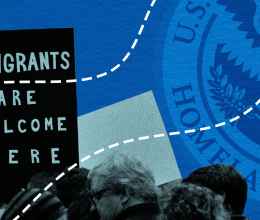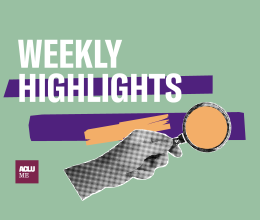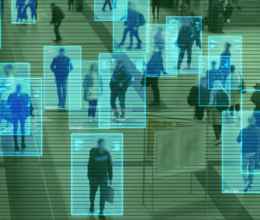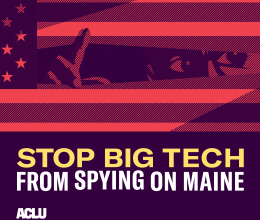
Privacy faces several threats from ever-expanding surveillance programs, technological advancements, and opaque practices. Our Constitution and democratic system demand that the government be transparent and accountable to the people, not the other way around.
We are working with lawmakers to protect your personal privacy and to ensure that Maine's people know what their government is doing. Collecting your sensitive information is itself an invasion of privacy. But how that data is used is also rife with abuse. Once information is collected, it can be shared widely and retained for years, and the rules about access and use can be changed entirely in secret without the public ever knowing.







